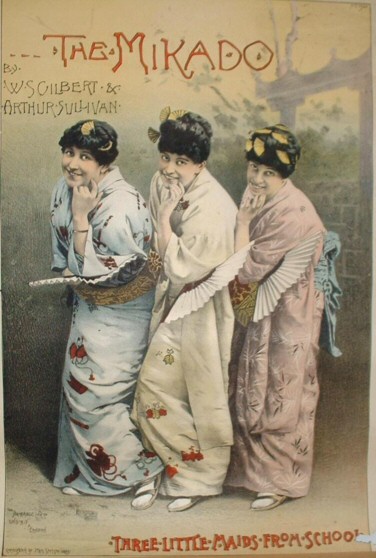
Word of the Day: Maladroit
Paul Schleifer
The definition of maladroit from www.dictionary.com is “lacking in adroitness,” a definition which appears somewhat circular, but then it is followed up with several synonyms: “unskillful; awkward; bungling; tactless.” The OED tells us that it is a direct borrowing from French (Middle French, in particular), appearing in 1642. The French word contains the prefix mal-, so perhaps we should look up the word adroit to see how the prefix makes it negative.
Adroit is also a straight borrowing from French, though in this case it comes from Old French. Adroit consists of the prefix a-, meaning to or at, and the word droit, probably with a sense of straight or correct. It means “physically or mentally skillful or resourceful; dexterous, clever, astute,” according to the OED. The first quote supplied by the OED is from J. Evelyn’s State of France, which says, “The best esteemed, and most adroict Cavalry of Europe,” making it clear that its first meaning was physically skillful though mentally skillful is probably the more regular usage in Contemporary English. For instance, Walter Scott, in Quentin Durward, writes, “The adroit manner in which he apologized for the indecorums committed by their attendant,” suggesting something other than physical skill.
Droit is also interesting. It means “a right or a legal claim, or money that is due to one by such a legal right” or it can mean “law, right, justice,” though that meaning is labeled “Obs.” (obsolete) by the OED editors. Droit can also be found in compounds like “droit-house” (a place where the collection of droits occurs) or “droitsman,” like a debt-collector. But perhaps the most interesting use of droit is in the French-sounding phrase droit(s) du (or de) seigneur (the last word being a French word for a feudal lord), pronounced /drwa dy sɛɲœr/, although droit has been Anglicized to the pronunciation /drɔɪt/. This “legal right” is “an alleged custom of mediæval times by which the feudal lord might have sexual intercourse with the bride of a vassal on the wedding-night, before she cohabited with her husband.” That mediæval lords ever practiced such a right is highly doubtful, at least not legally. Droit comes from the Latin dīrēctum, meaning straight or right.
So we go from a meaning of “straight” all the way, through a couple of prefixes, to a meaning of “physically or mentally or vocally clumsy.”
On this date in 1885, at the Savoy Theatre in London, Gilbert and Sullivan’s The Mikado opened. It ran for 672 performances, the second longest run for any musical up to that time. It remains one of the most popular works of musical theater in history.
Sir William Schwenck Gilber (1836-1911) was an English writer of dramas, poetry, and librettos (texts of operas or musicals). He was also a theater director who developed a realistic approach to theater, an approach that was key to the success of realistic drama in the late 19th and early 20th century. But he is best known for light verse and drama, especially the fourteen Savoy operas.
Sir Arthur Seymour Sullivan (1842-1900) was an English composer responsible for 24 operas, 11 major orchestral works, ballets, oratorios (like operas, but they don’t act), songs, hymns, and other music. He, too, is best known for the 14 Savoy operas.
Richard D’Oyly Carte (1844-1901) was a talent agent and producer (in the day he would have been called an impresario, from the Italian word for an enterprise), and hotelier. In addition to his fame as the producer of Gilbert and Sullivan, he built hotels, like the Savoy in London, theaters like the Savoy and the Palace, both in London.
The form of comic opera, or opera buffa, was begun in the 17th century in Italy, and it flourished and spread throughout Europe in the 18th and 19th centuries. In the mid-19th century, the French composer and impresario Louis Auguste Florimond Ronger, known as Hervé, and Jacques Offenbach, achieved great popularity with their operettas, a genre pretty much invented by Hervé. But, as one would expect from the French, the form of the operetta became more and more risqué, at least by English standards. D’Oyly Carte, looking for wholesome, English entertainment, brought Gilbert and Sullivan together to write such operettas for the English stage.
After numerous successes, such as The Mikado, The Pirates of Penzance, and HMS Pinafore, Gilbert had a falling out with Sullivan and D’Oyly Carte (over money, of course), and while the partnership came together for two last works, those two were not the success that the earlier works had been. Who knows how much more great work they could have achieved had they not fallen out.
Then again, artists have always been considered maladroit when it comes to money and relationships.
The image is a picture of a lithograph by John Stetson, done in 1885. It “depicts Kate Forster (left), Geraldine Ulmar (center), and Geraldine St. Maur (right) as the three little maids, respectively Pitti-Sing, Yum-Yum, and Peep-Bo.” If you have never seen The Mikado, look for it. It satirizes Victorian England. In fact, G&S set the operetta in Japan so that they can get away with a lot of the satire. There are several versions on YouTube (e.g. https://www.youtube.com/watch?v=c_DlC4n9CFQ), but of course it is better when seen live.